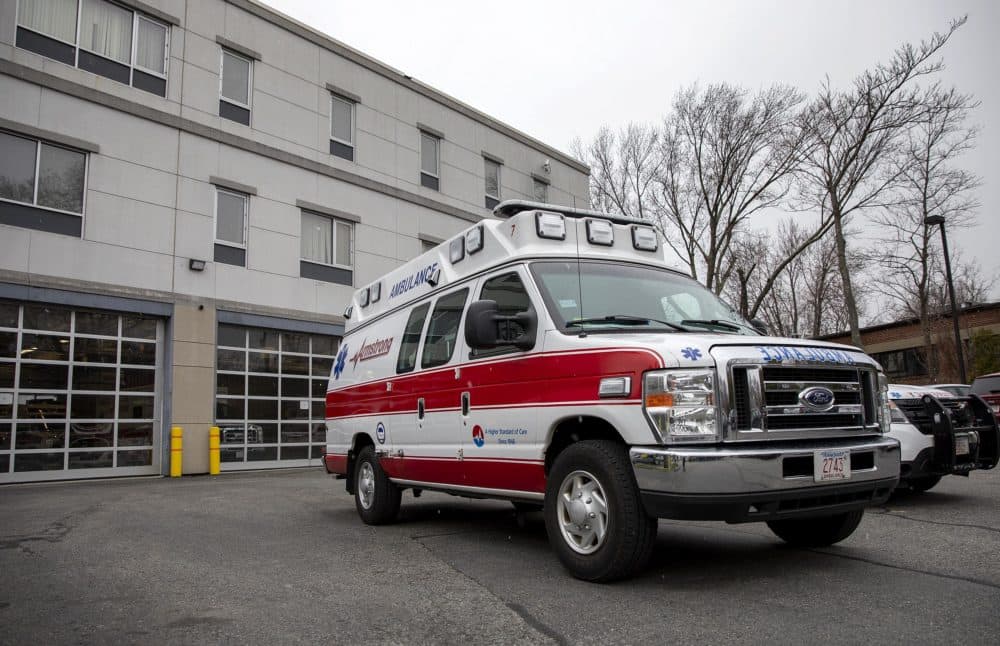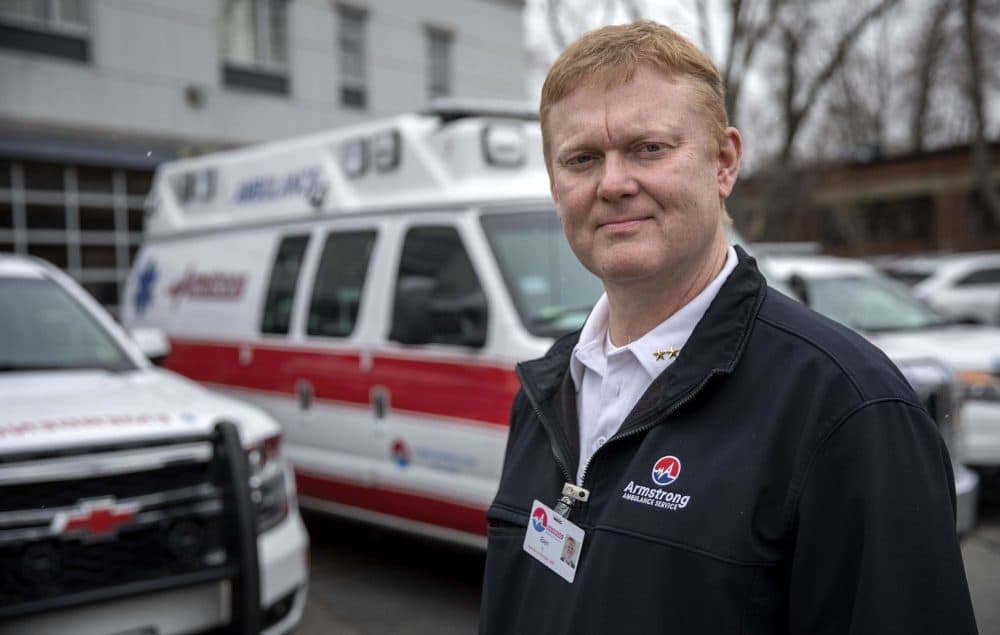Advertisement
Boston Area EMTs Beef Up Procedures To Protect Against The Coronavirus

A member of Boston's Emergency Medical Services recently tested positive for coronavirus. While the unidentified EMS worker is “doing well and recovering at home," according to a Boston Public Health Commission spokeswoman, local fire departments and ambulance companies are using new procedures to limit the spread of the disease.
Michael MacNeil, a paramedic and president of Boston's EMS union, says the coronavirus pandemic has required his 400 members to adapt.
"I think we all knew there was a doomsday or worse-case scenario," MacNeil said, "but we never fully expected it, and now it's looking at us right in the face."
MacNeil says the biggest challenge is people calling 911 out of fear.
"We're getting a lot of erroneous calls," he said. "We should be minimizing potential [EMT] exposures, and we're maximizing it."
Emergency dispatchers have begun screening calls with a short medical checklist for coronavirus symptoms, and MacNeil advises that people take their temperature before calling for an ambulance.
He says the union is considering changing the length of shifts to combat fatigue and burnout.
Bill Healey, a paramedic with Cataldo Ambulance, which provides emergency services west and north of Boston, says the pandemic has required changes in how the company responds to calls.
Now, "the number one thing" when responding to a potential coronavirus patient, he says, "is to send as few healthcare providers towards them as possible."
Typically, one paramedic waits in the truck while the other enters a home, makes an assessment, wheels the person out and loads them into the ambulance.
Advertisement
Healey says the company has also instituted a new sanitation protocol.
"Every two hours we're getting into the back of the truck with those very potent wipes and just literally wiping down the entire truck, the shelves, the cabinets, the floors," he says. "Just doing a full decontamination of the stretcher, all the equipment that we have on the patient as well."
EMTs expect the number of coronavirus calls to come in waves. Ben Podsiadlo, clinical director with Arlington-based Armstrong Ambulance Service, and a paramedic for 30 years, says there has been a lull for the past few days. But he's getting ready for what could be a tsunami.
"The way we're trying to look at it is to prepare, plan and coordinate with our partner agencies," he says.

Paramedics fear they will run out of supplies of personal protective equipment, like masks and gloves. MacNeil says unions across the region have raised money from their members to buy equipment to protect their workers.
Podsiadlo says so far Armstrong's PPE stockpile is holding up but is asking the public to donate masks and gloves.
"If you're not going to be in close contact, if you're sheltering in place at home and maintaining social distance," he says, "you don't need to hoard PPE that we need to keep ourselves safe, and to respond to you and your family."
This program aired on March 23, 2020. The audio for this program is not available.
